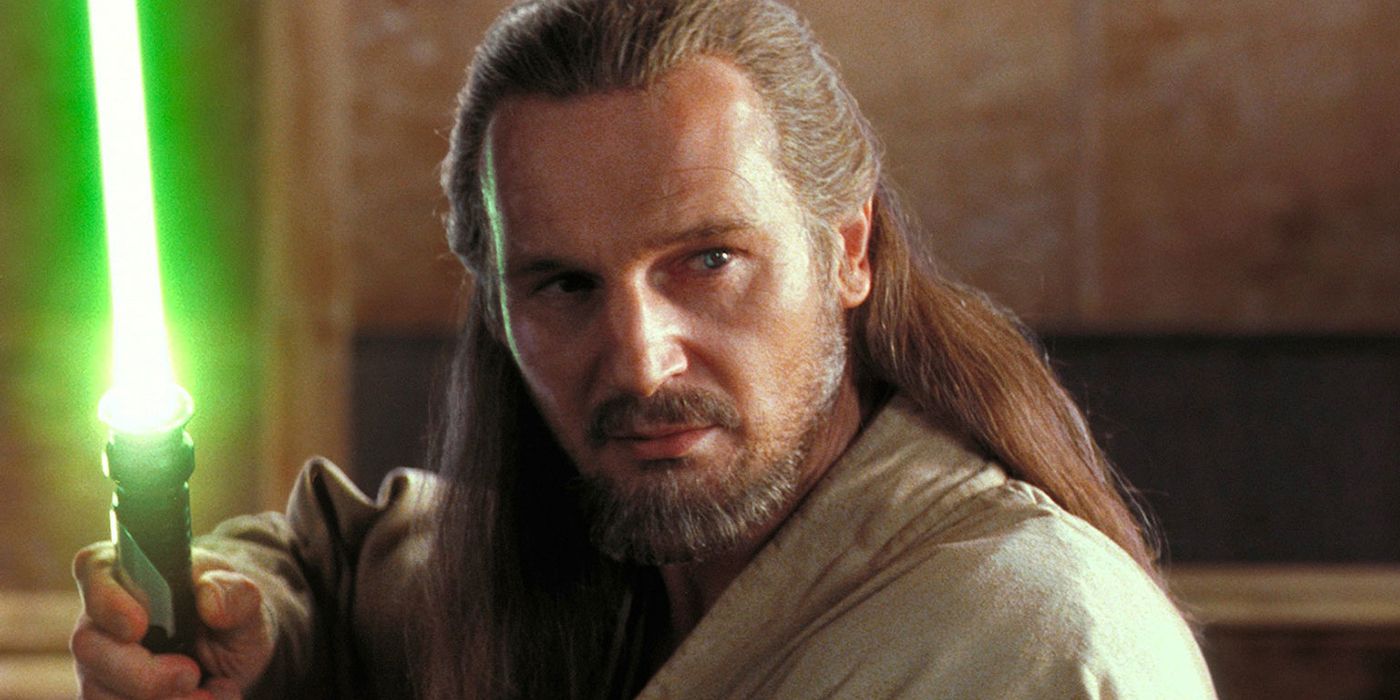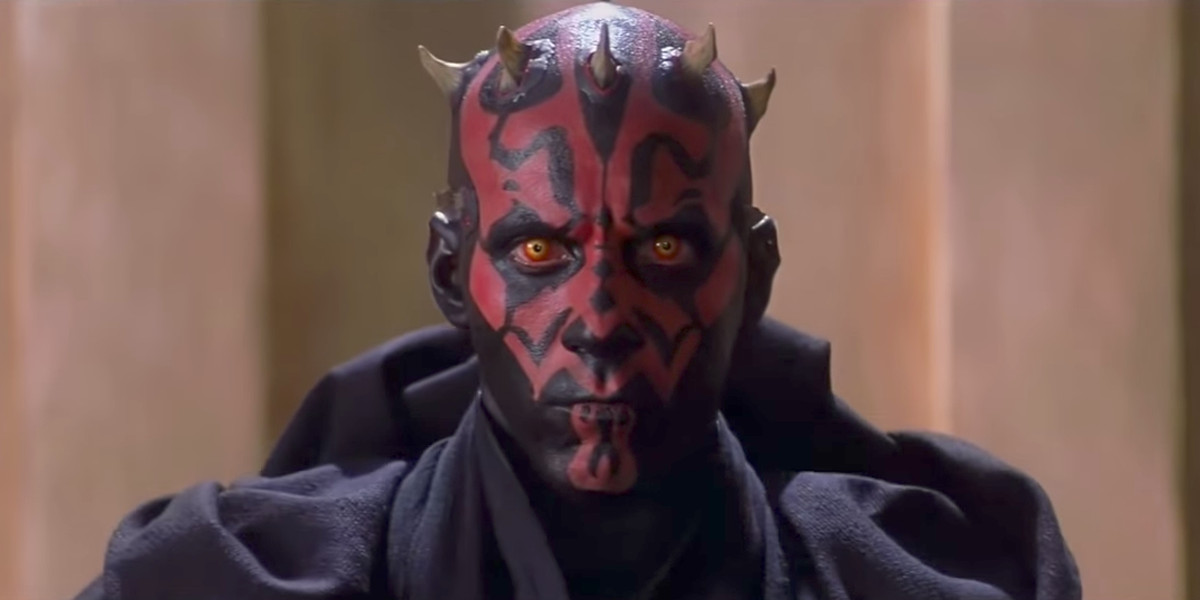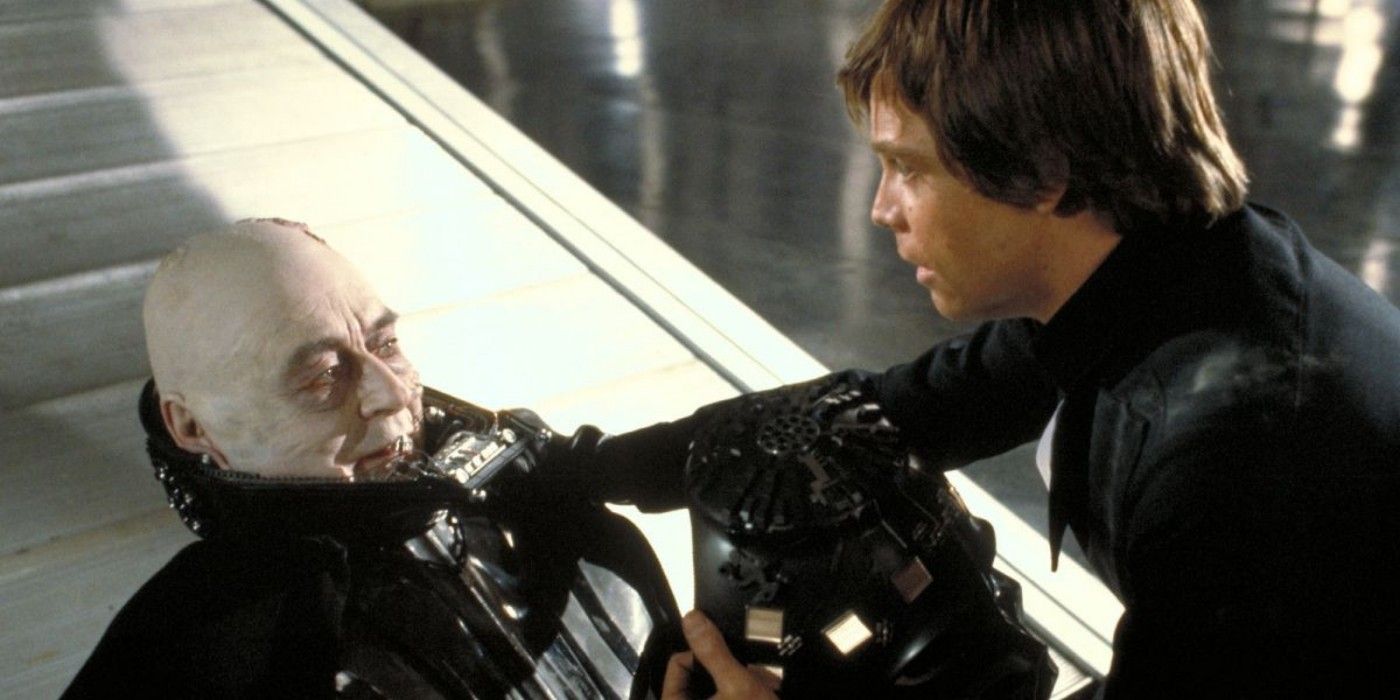Star Wars fans who were around and of age for the Prequel era remember how quickly the mood changed, from unparalleled anticipation to confusion and disappointment. Even if The Phantom Menace had been a perfect movie, it would've never been able to live up to the absurdly high expectations. But it also wasn't uniformly disparaged in the days and weeks after its release, as some mistakenly believe. The internet wasn't quite as efficient at consolidating public opinion around a few talking points that can be easily digested and regurgitated, as it is now. The Phantom Menace was a mixed bag that audiences struggled to process, and a new interview with Dave Filoni on Disney Gallery/Star Wars: The Mandalorian, puts one of the movie's pivotal scene into context better than ever before.
The documentary series, in which the creative team behind the hit show discusses the process of creating Star Wars as well as its cultural impact, tackles George Lucas's legacy in its second episode. Jon Favreau, Kathleen Kennedy and others share surprising pieces of inside information, like the fact that Episode I contains the highest number of practical miniatures and models. They also discuss the reasons why the film underwhelmed fans. "The Prequels, I thought, were almost an impossible task," Filoni remarks. He theorizes that fans had years and years to imagine things like the Jedi Council and Anakin as a child and that since George's version looked different than their own mental pictures, finally seeing them on screen felt like a letdown.
It wasn't all bad, though. The lightsaber battle between Qui-Gon, Obi-Wan and Darth Maul was one of the standout moments from The Phantom Menace that appealed to fans from the start. That fight featured not two, but three Force-sensitive combatants, all in their physical prime, set to some of Star Wars' best ever music. But to Dave Filoni, that doesn't even begin to explain the importance of the "Duel of the Fates" scene near the film's conclusion.
In his lengthy defense of Lucas and the film, Filoni connects the name of the score's track to the symbolic significance of the moment. "What's at stake really is how Anakin is going to turn out," he says. "That's why it's the Dual of the Fates. It's the fate of this child." His thinking goes like this: during the events of the Prequel Trilogy, the Jedi have already begun to lose their way. They operate with emotional detachment and hubris. But not Qui-Gon. He -- perhaps he alone -- remains grounded and altruistic. That makes Qui-Gon's death at the hands of Darth Maul that much more tragic and meaningful. Had the Jedi Master survived, he would've completed his training of Obi-Wan. The entire Jedi Order would've benefited from his presence, and his singular wisdom and insight. Ultimately, with Qui-Gon in the picture, Anakin's path would've been dramatically different. In other words, the whole Skywalker Saga hinges on whether Qui-Gon prevails or perishes in The Phantom Menace.
When he falls, Anakin is left with more of a brother figure than a father figure. Obi-Wan trains Anakin out of loyalty to Qui-Gon more than real purpose. He also succumbs to the increasingly clouded philosophy of the Jedi Council once he's elevated to it. This sets up Luke's eventual hero's journey, in which he must choose selflessness over selfishness, in contrast to his father, under similar circumstances. Vader is redeemed when, at long last, he makes the same choice to save his son.
"It's all part of why it works, and why we care. It's not about X-Wings," Filoni opines with quiet passion and authority. "We soulfully react. We don't just want an action movie, we want to feel uplifted." He says what he appreciates most about Lucas and the galaxy he created is that is shows, "there is a lot of hope out there. That we fundamentally want to be good people. That we can all be driven to do terrible things, but that we can persevere through selfless action." This message is especially important for children, the panel decides, who are some of Star Wars' most devoted and impressionable fans. "That's beautiful," director Bryce Dallas Howard responds. "I think we're done," quips Favreau. It probably won't be the last word on the relative quality of The Phantom Menace, but Dave Filoni has certainly given the fandom something to think about.



